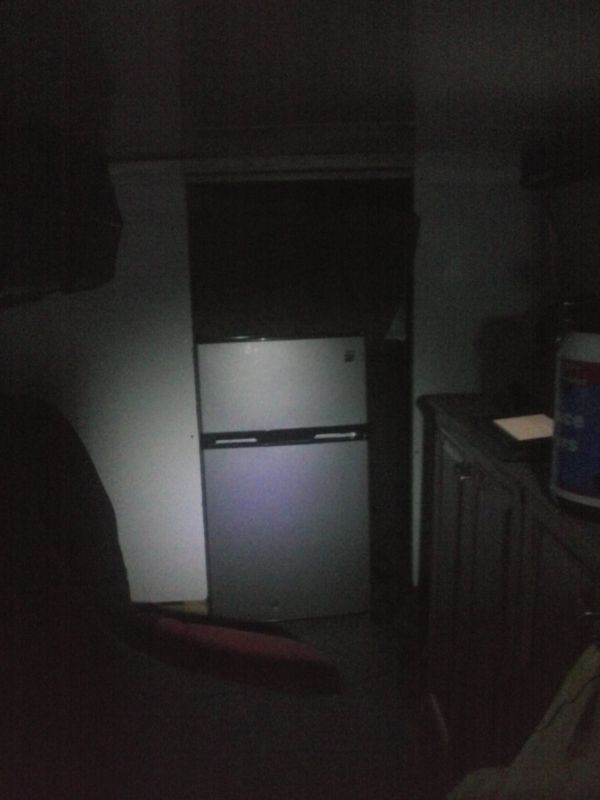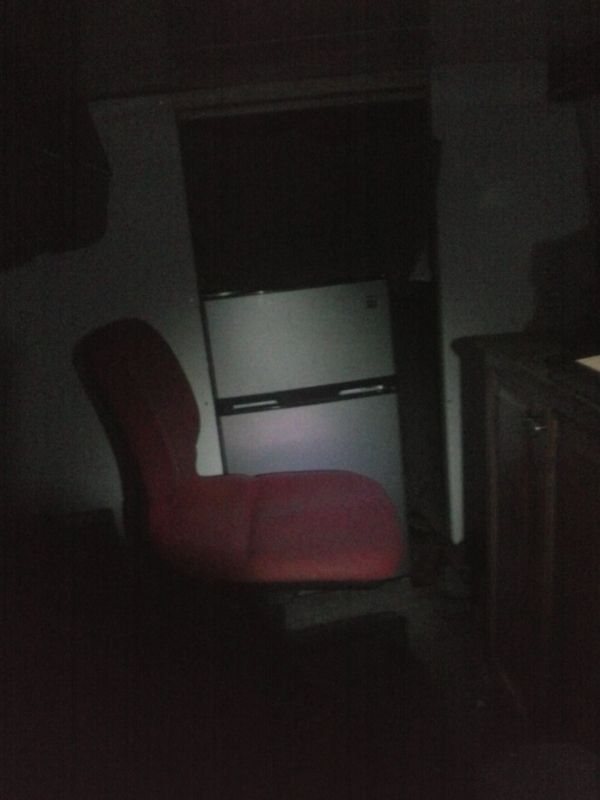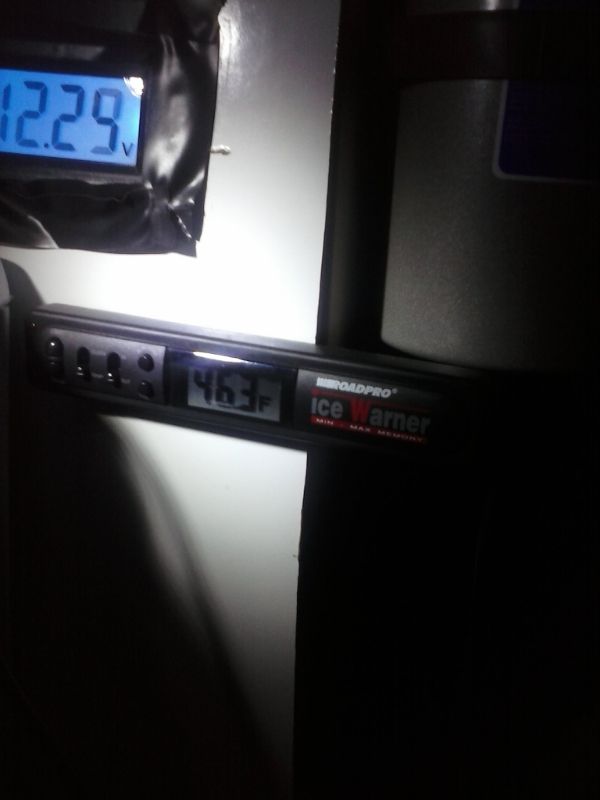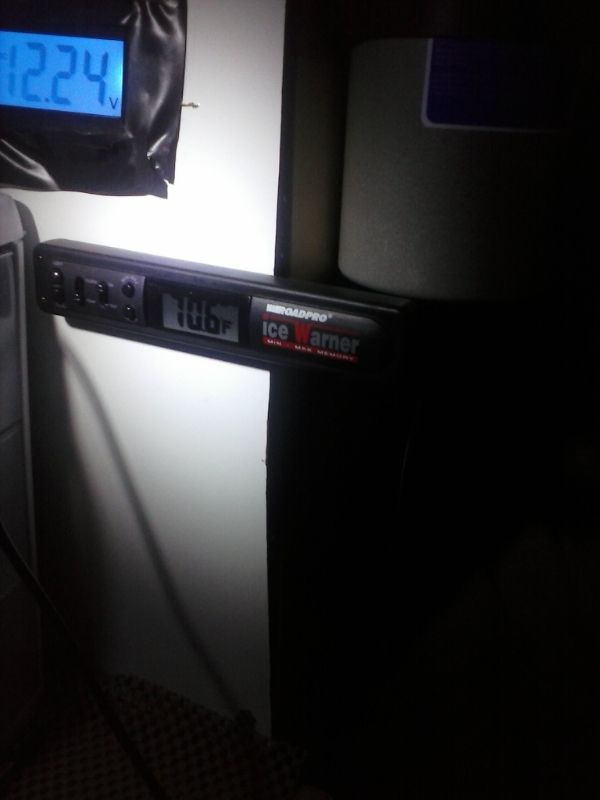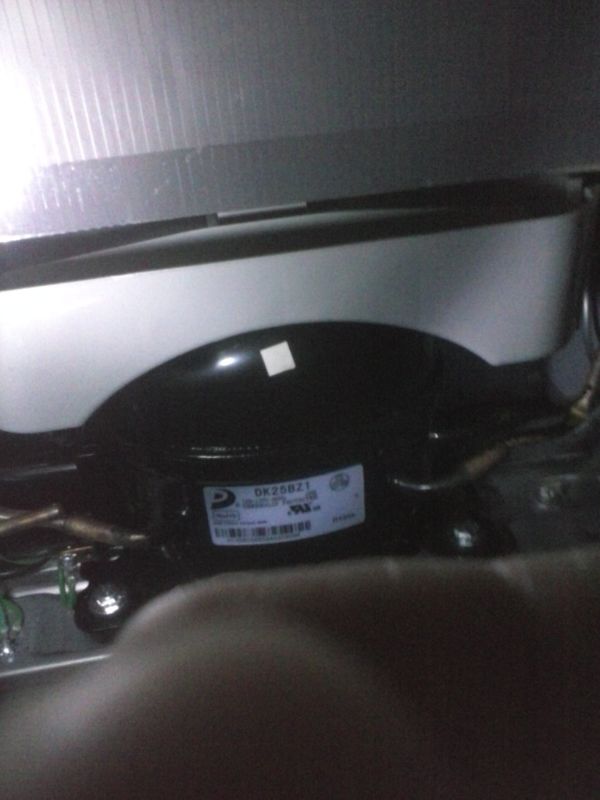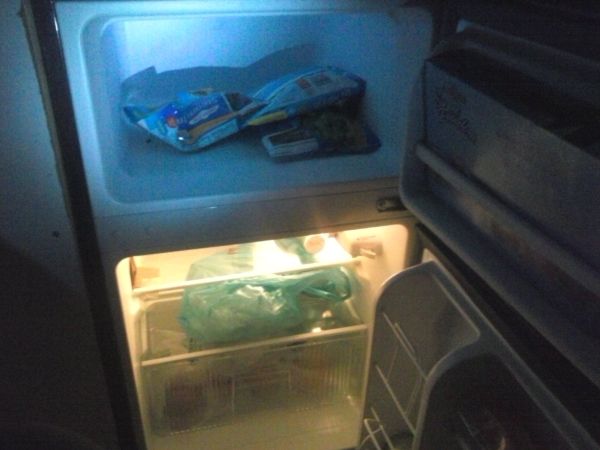VanLifeCrisis
Well-known member
- Joined
- Aug 1, 2012
- Messages
- 2,157
- Reaction score
- 1
Well ive had it for a little over a week and wanted to give my initial thoughts.
Im referring to this mini fridge:
http://www.sears.com/kenmore-3.1-cu...p-04695693000P?prdNo=1&blockNo=1&blockType=G1
I purchased a cobra 800 inverter, and it handled it fine. It does chirp the alarm for a split second when the compressor kicks on sometimes, but doesnt full on alarm.
First thing i want to emphasize is that this fridge is bigger than i expected. True i had dimensions but i didnt really grasp it until it was in the van and eating up all my room. I ended up tearing out my bulkhead door and putting it there, so now i got most of it between the front seats. Not ideal but it gives me more room.
I had an initial battery charge probably somewhere aroiu d 80% when i turned it on first time. I was a bit alarmed at how low my volt monitor descended when i switched on, i never had such a load on them before. Of course it went back up after the compressor kicked off.
The first time i ran it lasted about 2 days until i felt it needed to be charged (around 50% battery when compressor is off). I charged batteries to 100% this time, and it has lasted 3 days so far this time and i estimate i have another day maybe 2 before it needs recharged. This might be different when it isnt in the 20s or lower out tho.
Food is all cold, sodas, chicken, frozen veggies and even ice cream.
Overall i am pleased so far for the amount of money put in. I think it will really pay off once solar is hooked up. I will report back after some time on the longevity issues of using a home appliance, im sure it will get smacked around this spring.
If i were to do it again i might hook up to shore power to get it primed before putting it in the van, that way i avoid that initial strain on batteries.
Im referring to this mini fridge:
http://www.sears.com/kenmore-3.1-cu...p-04695693000P?prdNo=1&blockNo=1&blockType=G1
I purchased a cobra 800 inverter, and it handled it fine. It does chirp the alarm for a split second when the compressor kicks on sometimes, but doesnt full on alarm.
First thing i want to emphasize is that this fridge is bigger than i expected. True i had dimensions but i didnt really grasp it until it was in the van and eating up all my room. I ended up tearing out my bulkhead door and putting it there, so now i got most of it between the front seats. Not ideal but it gives me more room.
I had an initial battery charge probably somewhere aroiu d 80% when i turned it on first time. I was a bit alarmed at how low my volt monitor descended when i switched on, i never had such a load on them before. Of course it went back up after the compressor kicked off.
The first time i ran it lasted about 2 days until i felt it needed to be charged (around 50% battery when compressor is off). I charged batteries to 100% this time, and it has lasted 3 days so far this time and i estimate i have another day maybe 2 before it needs recharged. This might be different when it isnt in the 20s or lower out tho.
Food is all cold, sodas, chicken, frozen veggies and even ice cream.
Overall i am pleased so far for the amount of money put in. I think it will really pay off once solar is hooked up. I will report back after some time on the longevity issues of using a home appliance, im sure it will get smacked around this spring.
If i were to do it again i might hook up to shore power to get it primed before putting it in the van, that way i avoid that initial strain on batteries.















































































